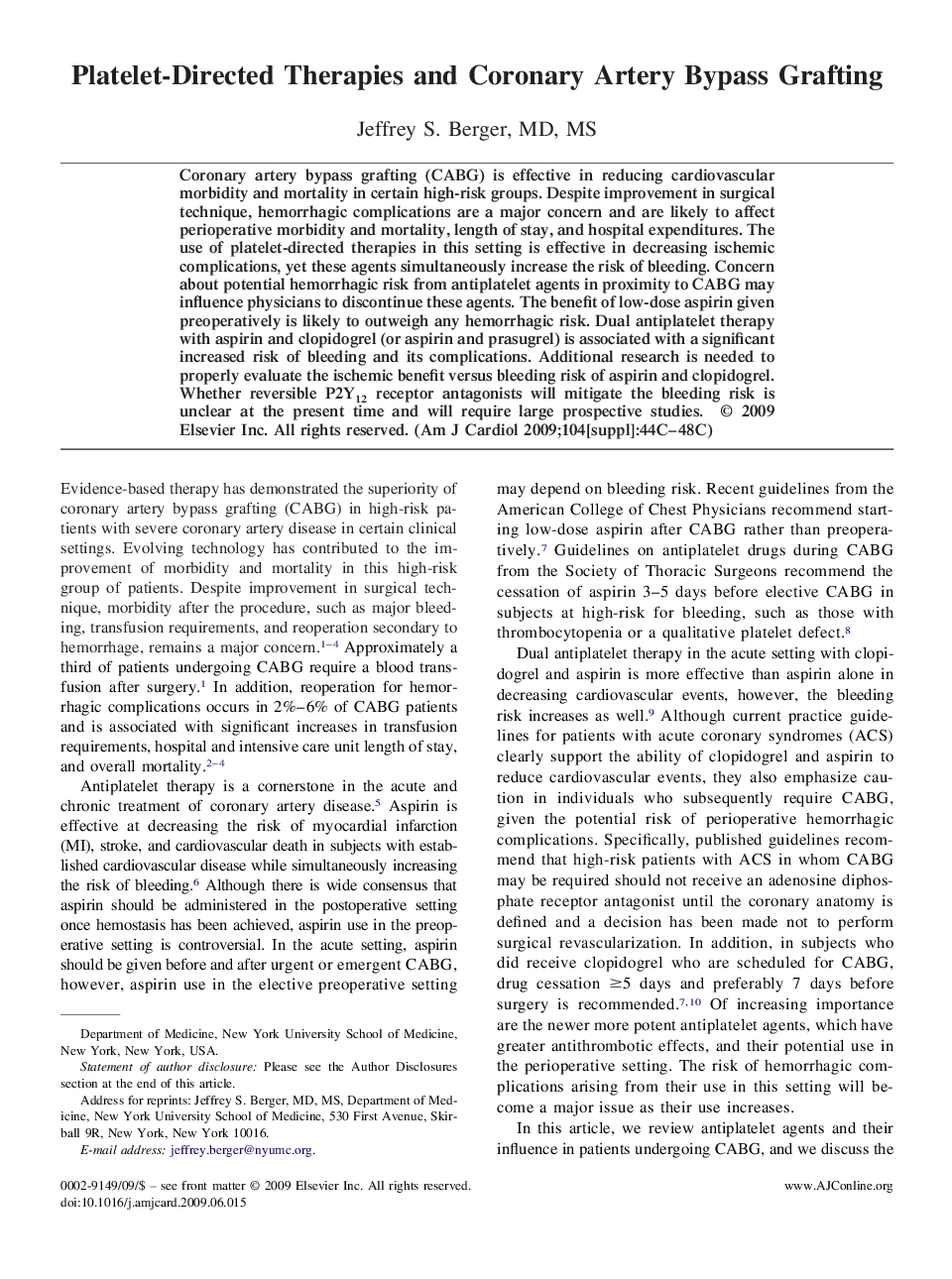| Article ID | Journal | Published Year | Pages | File Type |
|---|---|---|---|---|
| 2857755 | The American Journal of Cardiology | 2009 | 5 Pages |
Coronary artery bypass grafting (CABG) is effective in reducing cardiovascular morbidity and mortality in certain high-risk groups. Despite improvement in surgical technique, hemorrhagic complications are a major concern and are likely to affect perioperative morbidity and mortality, length of stay, and hospital expenditures. The use of platelet-directed therapies in this setting is effective in decreasing ischemic complications, yet these agents simultaneously increase the risk of bleeding. Concern about potential hemorrhagic risk from antiplatelet agents in proximity to CABG may influence physicians to discontinue these agents. The benefit of low-dose aspirin given preoperatively is likely to outweigh any hemorrhagic risk. Dual antiplatelet therapy with aspirin and clopidogrel (or aspirin and prasugrel) is associated with a significant increased risk of bleeding and its complications. Additional research is needed to properly evaluate the ischemic benefit versus bleeding risk of aspirin and clopidogrel. Whether reversible P2Y12 receptor antagonists will mitigate the bleeding risk is unclear at the present time and will require large prospective studies.
